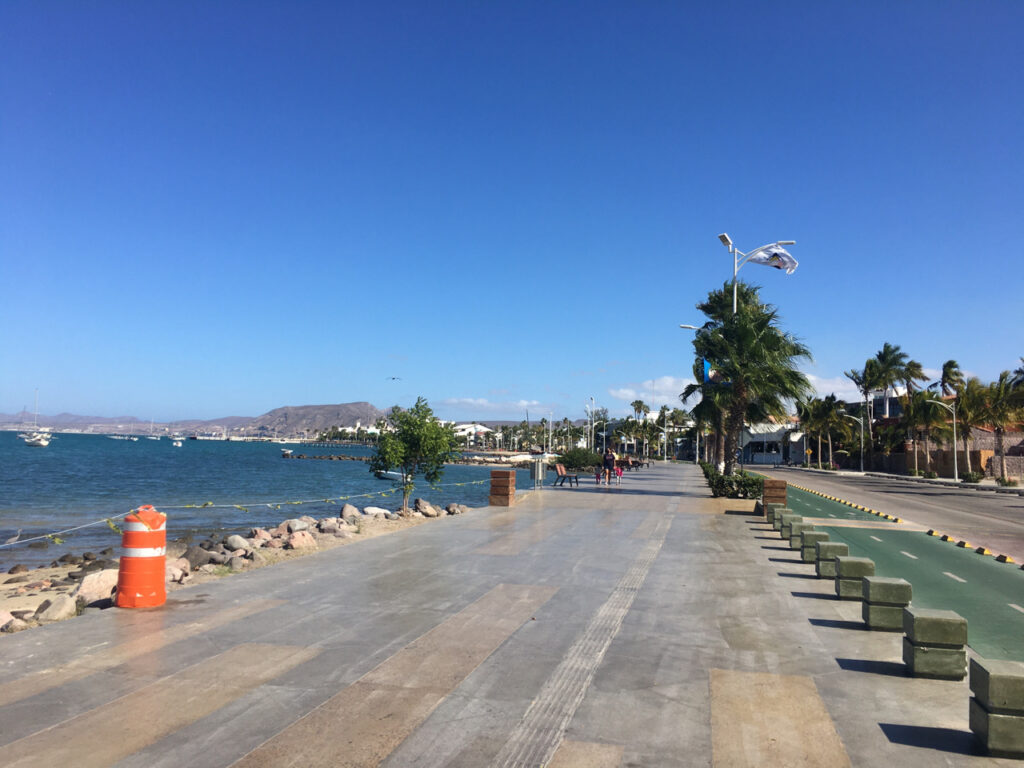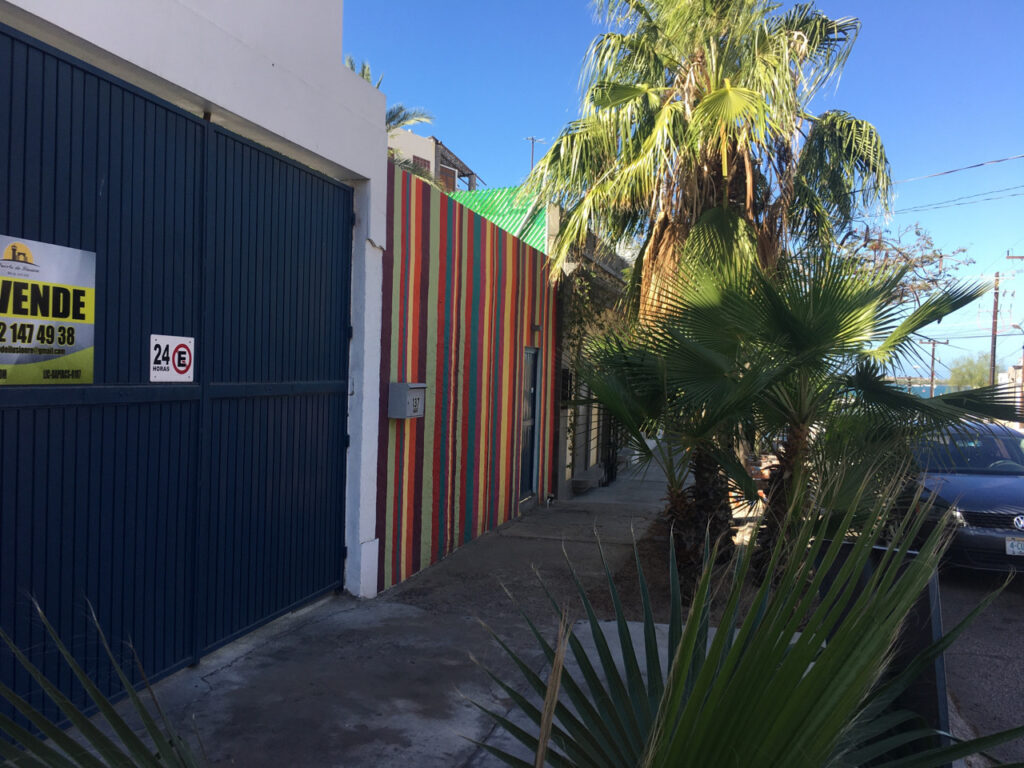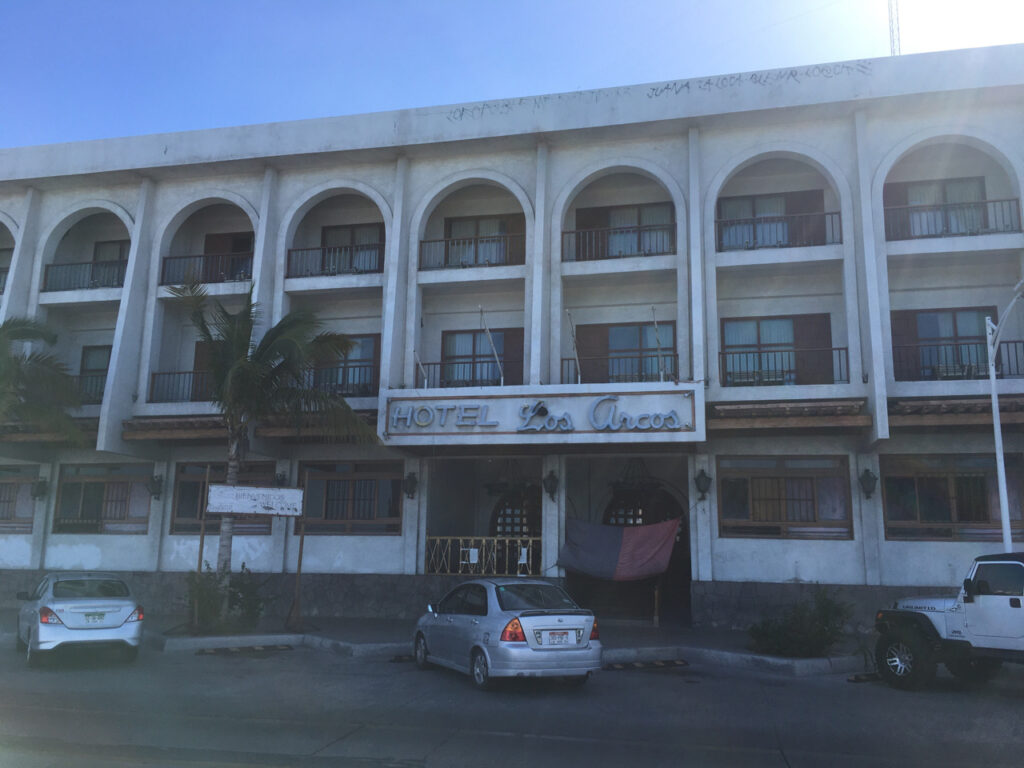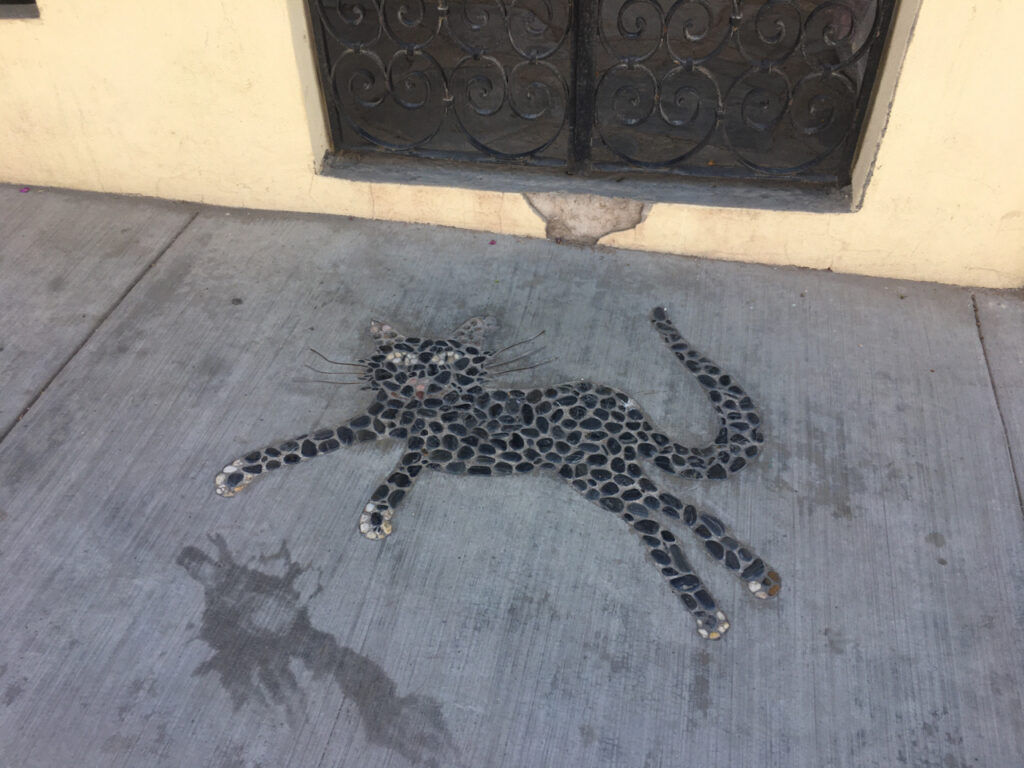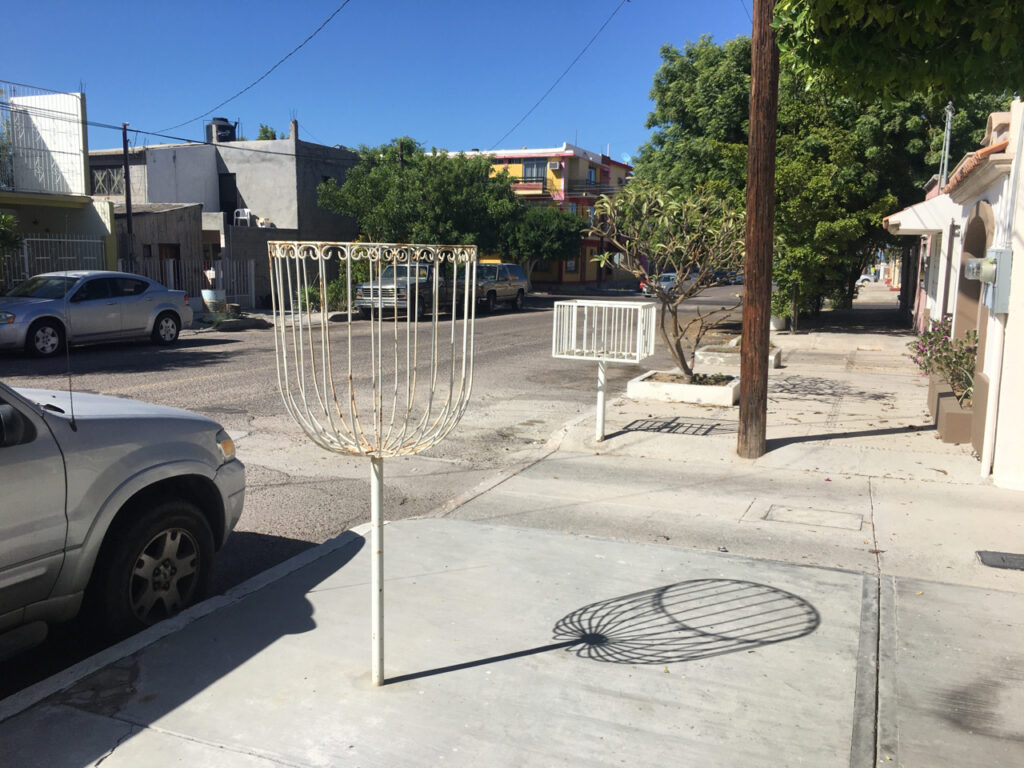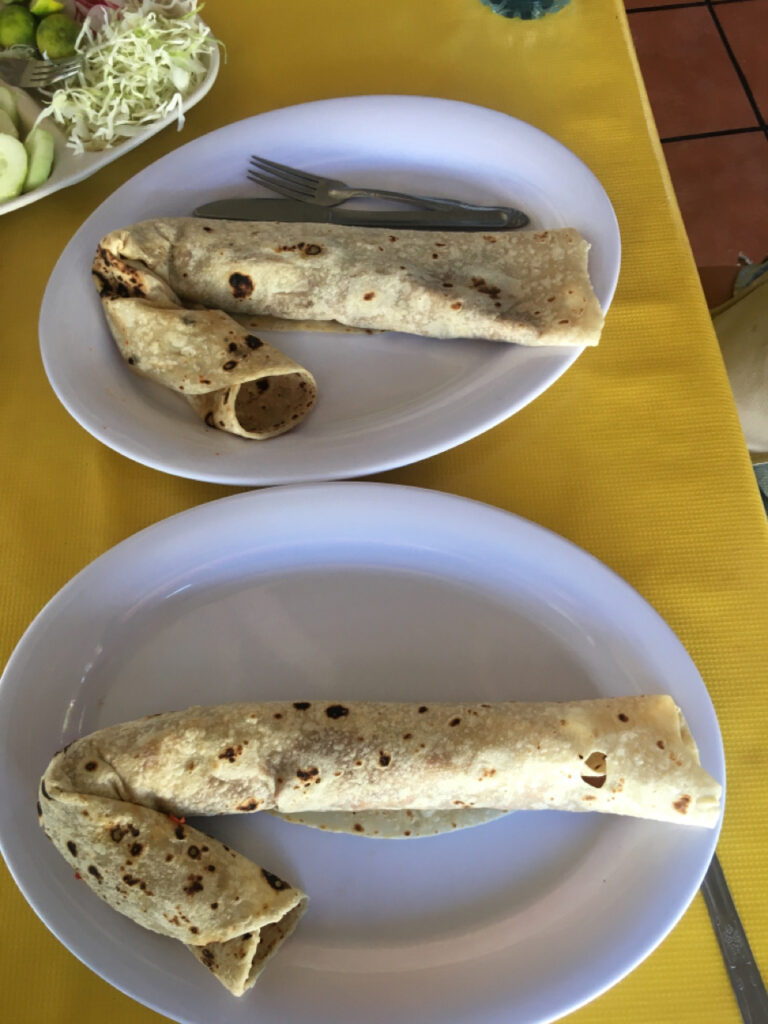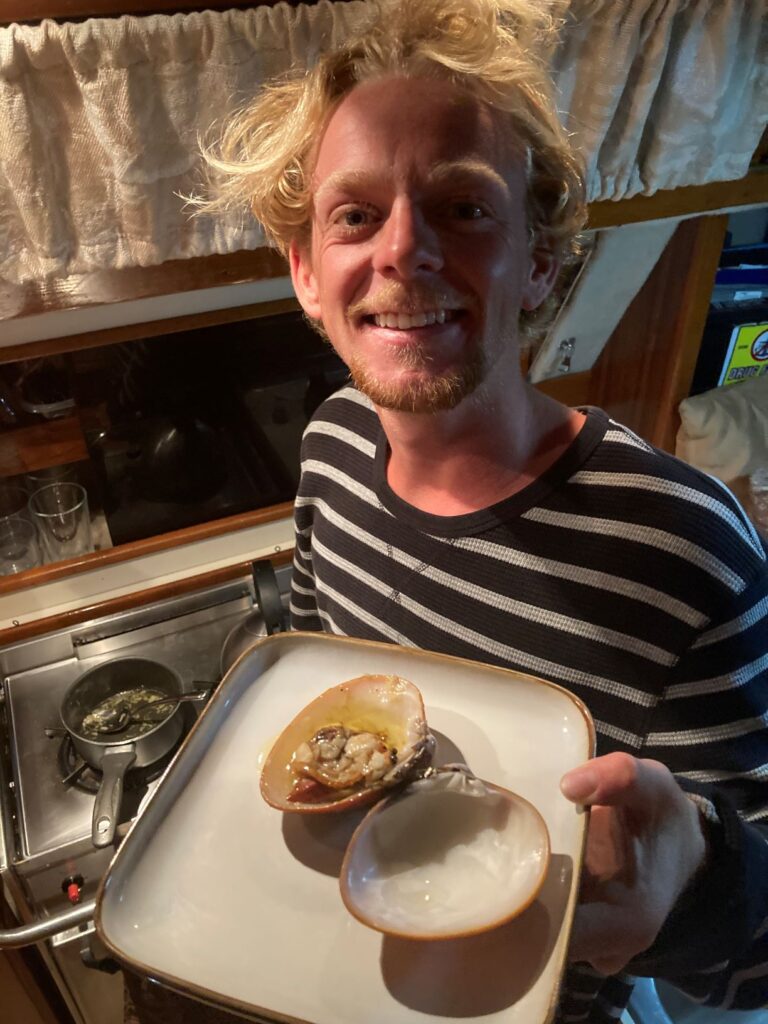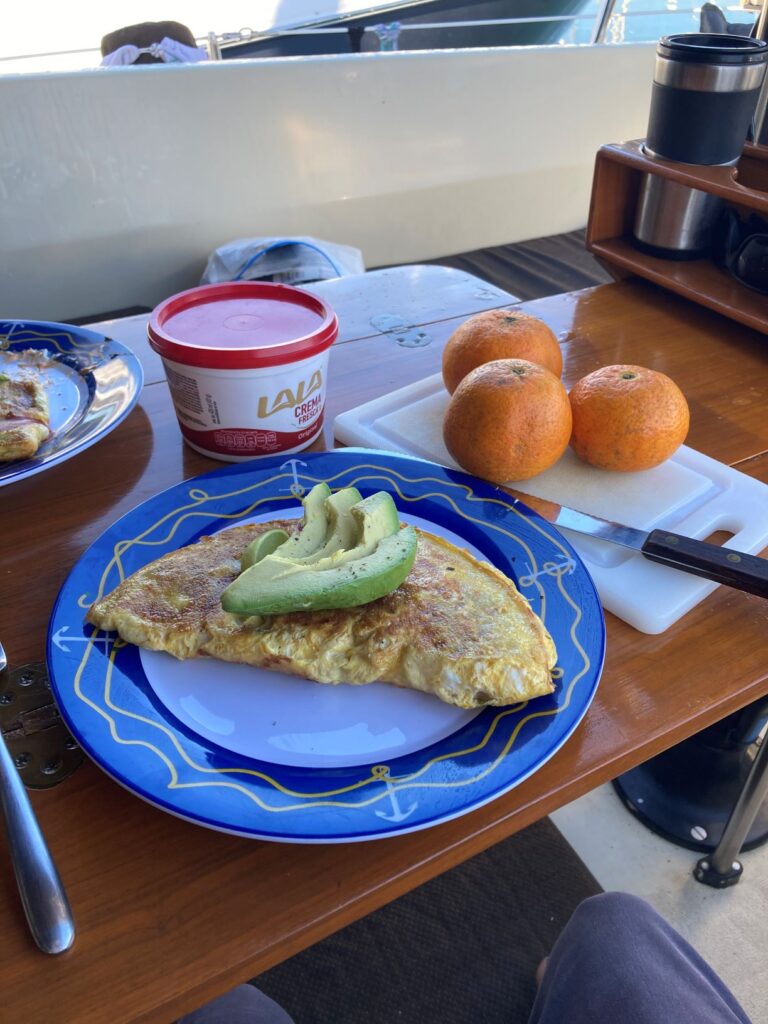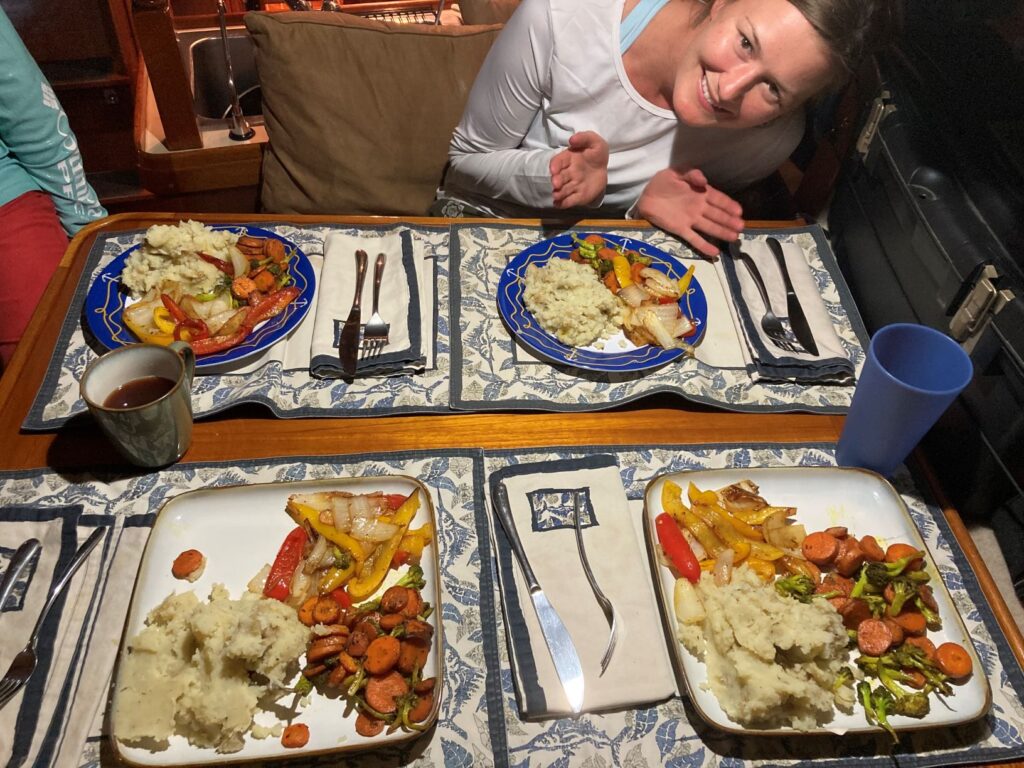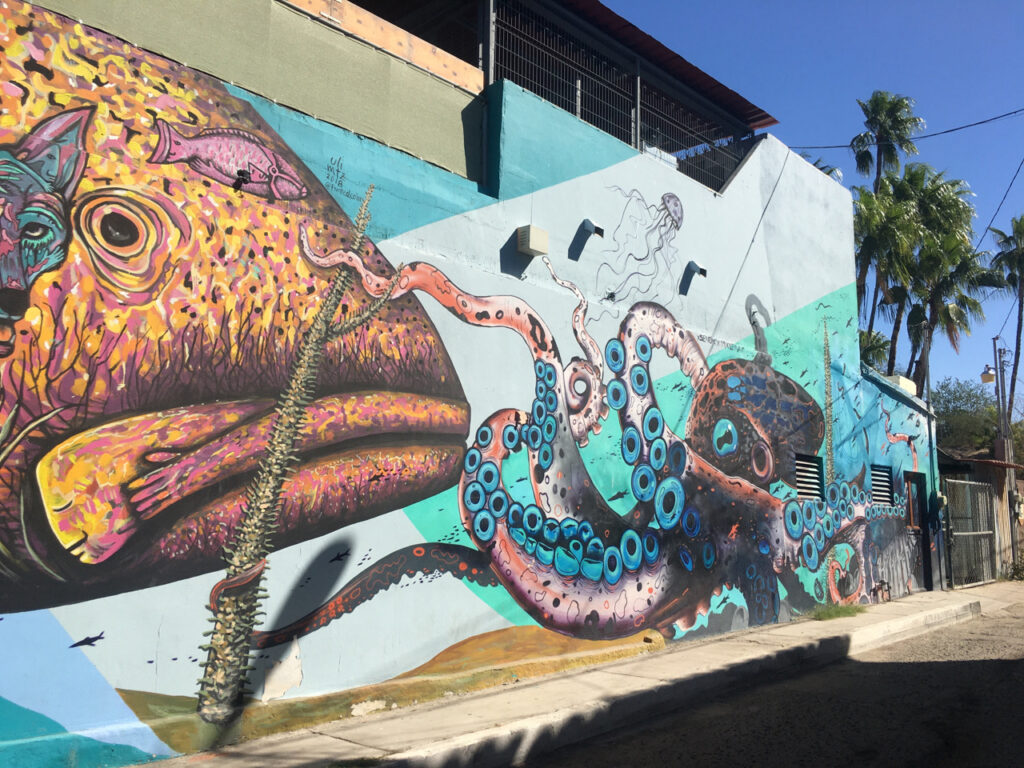We arrived in La Paz and began the normal marina routine of collecting trash, cleaning the boat inside-out and topping off the water tank. Luckily, at Marina de La Paz, we can rent a dock slip for a few hours to clean the boat and avoid paying the full daily fee. Once the boat was spick and span, we moved out to the crowded anchorage just outside the marina. Luckily, anchoring is free and the marina has a nice dingy dock to secure our water car to for a few hours while we continued to run errands and check things off the to-do list.
Arriving on Saturday, we quickly realized La Paz is dead on the weekends with almost everything closed. It is hard to imagine La Paz pre-COVID or what it would have been like at its peak. Walking around the town, there are a lot of abandoned waterfront properties including hotels and restaurants. Based on the building’s level of decay and graffiti, it’s hard to tell if this is due to the pandemic or a longer-term inability to keep the tourism going here. There is still some charm and character as you walk the streets and see some of the beautiful street art and flower-lined sidewalks. There aren’t many people out and about and every store and restaurant requires face coverings, temperature checks, and hand sanitizer.
Being the first day of December, I couldn’t help but reflect on what has happened since we left San Diego on November 1. We have sailed approximately 1,000 nautical miles from San Diego to La Paz. As a crew, we have gone from almost complete strangers to a slightly dysfunctional family and are filling our social roles. Eitan is the obvious leader, ultimately responsible for all of us and orchestras the scheduled route and boat activities. He has spent a lot of time pushing us to learn and understand the different roles and functions on a boat. Aside from pulling into a marina or anchoring in a busy location, Connor, Abbey, and I are now responsible for sailing, navigating, steering, and anchoring the boat. At times, the lessons come with some tough love as we learn to do things without his guidance and forget critical steps, like trying to raise the mainsail but not turning into the wind or forgetting to pull the dingy in as we approach a dock.
Connor has taken the role of head chef. After working in restaurants, Connor’s ability to cook intuitively without a recipe has continued to surprise us all especially considering he has been living in a van for the past year. He does about 70% of the cooking with Eitan, Abbey, and me taking the remaining meals. In general, two meals per day are prepared on board: breakfast or lunch in the late morning and dinner around sunset. Although delicious, the meals haven’t exactly been healthy and the portions are large enough for Eitan to constantly remind us we consume twice as much food as any crew he has been on with this many people. For our 3-week Pacific crossing, we will need to adjust our food consumption to better manage the budget, provisions, and waste generation. Abbey fills in doing the more menial and tedious tasks here and there. They are both still growing up and learning the life lessons you obtain in your early 20’s and living away from your parents, like cleaning and picking up after yourself, taking initiative and responsibility, and understanding that taking shortcuts rarely get you where you need to go. Without parents onboard, Eitan is there to enforce these lessons although I’m sure he’d rather not have to.
As for me, I haven’t quite figured out where I fit in. Being an engineer, people are quick to assume that I am more mechanically skilled and useful than I actually am. Unfortunately, I don’t have any actual experience with motors, pumps, and electrical wiring which is more the skill set of mechanical and electrical engineers. To be honest, my experience with civil water resources engineering doesn’t make me any more useful in most everyday situations on or off a boat. I know enough about things in a broader sense and can understand the bigger picture. For example, I understand how to desalinate water but can’t actually troubleshoot issues with the water maker. Although I can think critically and I’m sure I can figure out most issues with enough time and resources, I typically just try to be as useful as I can.
